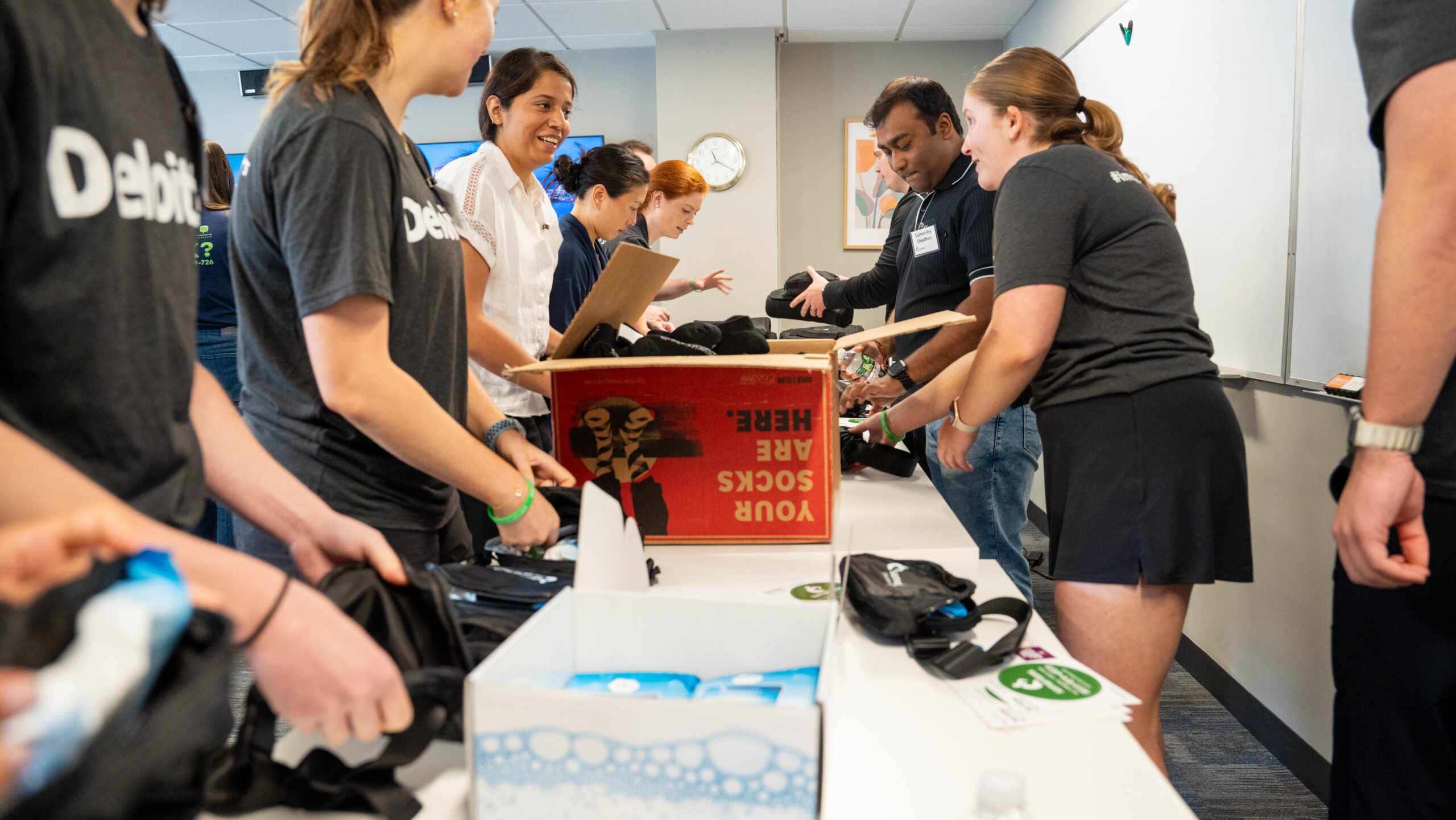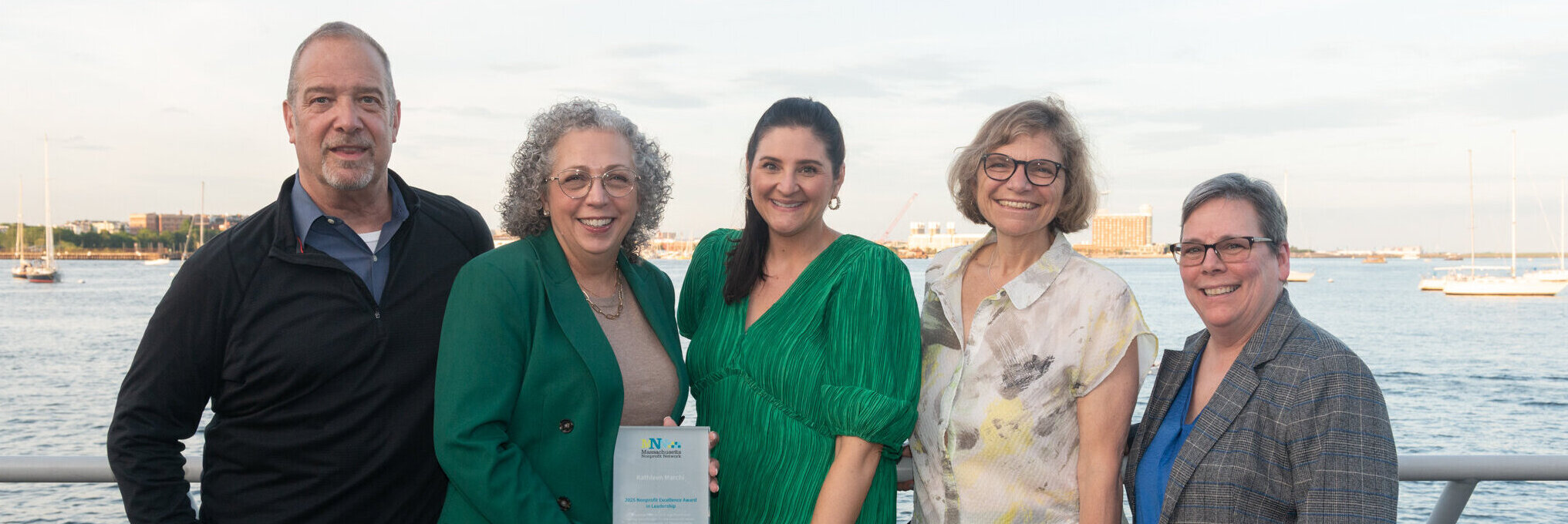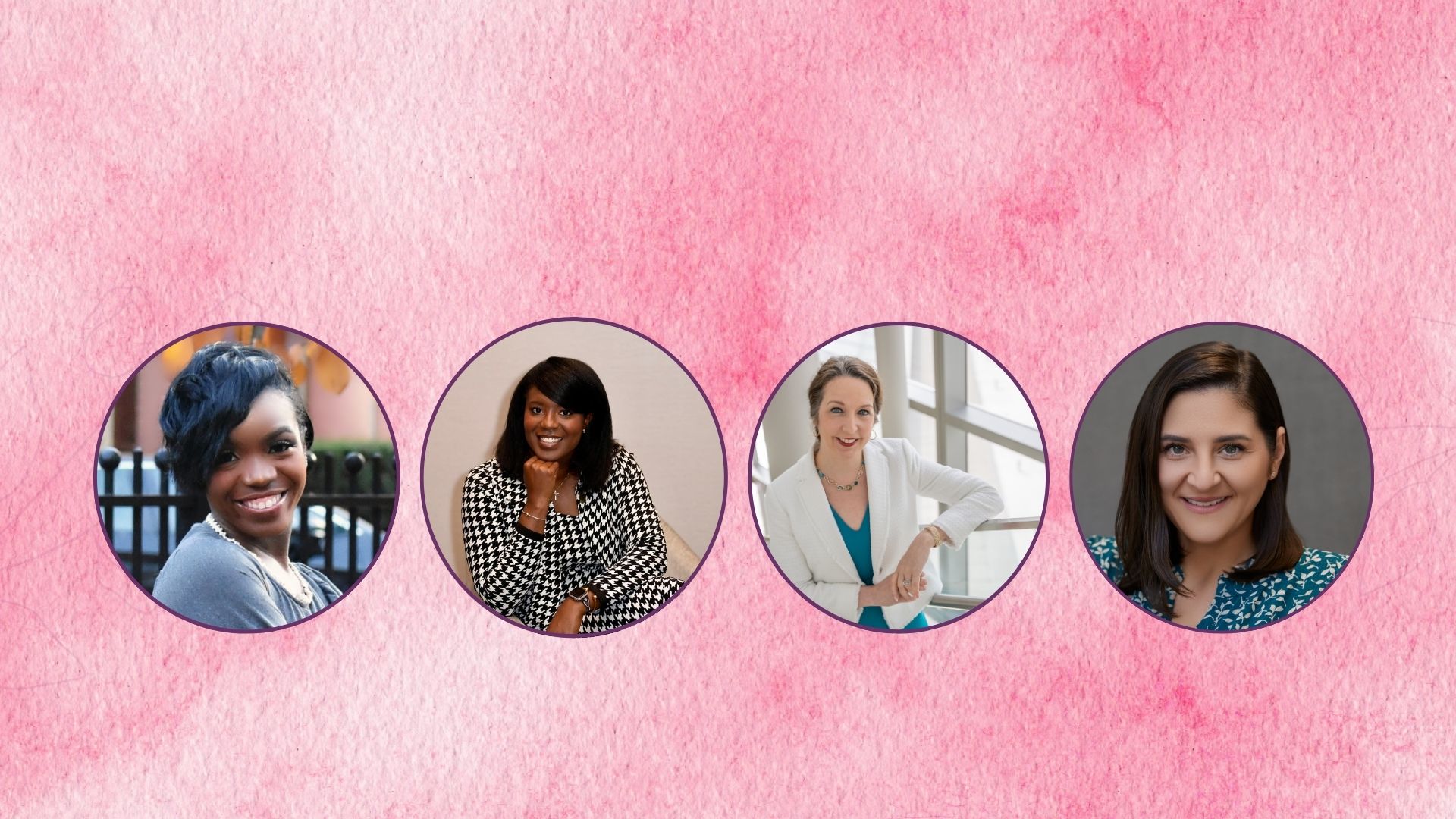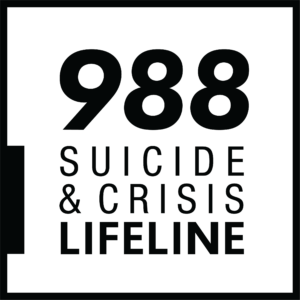People of any age, race, ethnicity, gender, or sexual orientation can experience mental illness and suicidal ideation, but there are certain groups who have substantially higher risks than the general U.S. population. One of these groups is the Black and African American populations in the United States. Black Americans are 20% more likely to experience serious mental distress, such as a depressive disorder, than white Americans. Among Black Americans born after 1986, suicide is a top 5 leading cause of death. What is most alarming is that as suicide decreased overall in 2019 and 2020, it increased in the Black community, specifically in Black men. And from 2020 to 2021, the percentage increase in suicide rates among non-Hispanic Black people was 13% compared to 3% among white people.
And yet, even with an increasing risk for mental illness and suicide, there is still minimal conversation about and among the Black community about these struggles. In fact, it has been found that only about 25% of Black Americans seek mental health treatment, compared to 40% of white Americans.
So, why is the Black community seeking treatment less often and at a growing risk for mental illness and suicide? Why do so many of these struggles remain hidden or undiagnosed? And what is being done to change this reality? This article explores these questions.
Why is the Black community seeking treatment less often and at a growing risk for mental illness and suicide, and why do these struggles often remain hidden or undiagnosed?
There are many contributing factors that influence the increasing rate of suicide and the ongoing stigma that allows mental health struggles to remain hidden within the Black community:
- Race-based Trauma: A 2012 study found that Black Americans reported experiencing discrimination at a significantly higher rate than any other ethnic group. Racial bias and discrimination in health care causes trauma and mistrust, often keeping Black Americans’ struggles hidden, misdiagnosed, or undiagnosed. This discrimination combined with frequent exposure to the shootings of Black people at the hands of police can have long-term mental health effects and can cause post-traumatic stress disorder (PTSD) in some. “There’s a heightened sense of fear and anxiety when you feel like you can’t trust the people who’ve been put in charge to keep you safe,” says Monica Williams, a clinical psychologist and director of the Center for Mental Health Disparities at the University of Louisville. “Combined with everyday instances of racism, like microaggressions and discrimination, that contributes to a sense of alienation and isolation. It’s race-based trauma.”
- Emotional Intolerance: Black people have also seen that sharing emotions can range from being futile to dangerous. Black boys who show signs of irritability are less likely than their white peers to receive care for depression. Their expressed emotions are more likely to be ruled as disruptive and requiring discipline, while their white peers who express the same emotions are most likely to be diagnosed with mood disorders. Similarly, when Black men express emotion, particularly anger, in some settings, it can prove to be fatal. WIth a history of chronic, systemic oppression combined with regularly seeing individuals who look like them featured in the news for receiving violence from police, Black families have had to learn to teach their children to suppress their emotions. As one mother of a Black teenage son explains, “The message this unfortunately sends is that it is better to be silent, even when under distress, than to cry for help.”
- Community Identity: The historic mistreatment and violence toward Black people have also played a role in creating a silence about mental health struggles because the Black community has had to learn how to face insurmountable hardships. Having endured so much, this has played a role in enabling this community to proudly self-identify as a strong people. While this sort of thinking can occur on an unconscious level, individuals within the Black community are sometimes led to keep their mental health struggles hidden because they believe that they are part of a group of people who are strong enough to endure any emotional hardship.
- Resources & Access: There are also concrete barriers that limit the Black community’s access to mental health support, which further cultivates the suppression of expressing mental health needs. The cost of mental health care, a lack of health insurance, months-long wait lists, unreliable transportation and limited culturally-appropriate mental health services all serve as deterrents from encouraging those struggling with mental health in the Black community to seek help.
- Mental Health Stigma: While immense effort is being made at a national level to break the stigma of mental illness and suicide in order to make it easier for people to seek the help and support they need, mental health struggles still continue to be incorrectly associated with weakness. As a community that has and continues to experience systemic oppression, Black people do not readily want to share about an aspect of themselves that the world still views as a weakness or character flaw instead of a health condition. Until the overall stigma of suicide and mental illness is broken, it is reasonable to assume that far too many mental health struggles within the Black community will remain hidden.
So what is being done to change this reality?
While the multiple factors that contribute to this problem can feel insurmountable at times, there are wonderful organizations across the country who are working tirelessly to make the mental health struggles of the Black community seen, to provide the support and resources that are lacking, and to break the stigma of mental illness and suicide so that more Black adults and youth feel empowered to come forward when they need help.
At Samaritans, we want to highlight three of these local Black-led organizations that are working to change the status quo. We have had the privilege to work in partnership with all three of these organizations in recent years, and we want to encourage people to support the critical work they are doing:

DeeDee’s Cry: Founder Toy Burton is a suicide attempt survivor and a suicide loss survivor. Toy lost her sister, Denita Shayne Morris (DeeDee), to suicide when her sister was only 23 years old. In 2017, Toy again found herself in the face of suicide when she tried to help a friend who had lost her brother to suicide. In searching online for resources and support for suicide loss survivors, Toy quickly realized that very few suicide prevention organizations focus their attention on the unique mental health needs and hidden struggles of BIPOC (Black Indigenous People of Color) communities. This led Toy to found DeeDee’s Cry. The mission of DeeDee’s Cry is to create a space where conversations begin to lift the stigma on suicide and mental health within BIPOC communities so that their struggles are no longer hidden. DeeDee’s Cry collaborates with other organizations to create events, programs, and projects within BIPOC communities that focus on mental health and suicide prevention.

PureSpark: Nieisha Deed founded PureSpark in response to witnessing Black women hide their struggles with mental illness because of the stigma associated with it in the Black community. Nieisha says that she has watched too many Black women put themselves, including their mental health, last to help others. When Nieisha struggled with deep depression and suicidal ideation as a young Black woman, she says that she craved the chance to make her struggles seen and to have a community of support to turn to. PureSpark is Nieisha’s response to that problem she saw and experienced. Her organization brings hope to those who find themselves in a dark place by providing Massachusetts’s first Black Wellness Directory. The organization uses social media and a web platform to provide access to mental health resources that would otherwise be out of reach for someone who has traditionally seen the community around them hide their mental health struggles.

Follow Suit: Anthony Ahmad Thompson’s high school basketball coach once told him, “You never get a second chance to make a first impression.” That advice has stuck with Anthony ever since. Having grown up in a broken home and having made mistakes that led him to prison for a period of time, Anthony founded Follow Suit because he says that he wants to help young men shoot for their dreams, rather than get caught in the same pitfalls he did. “In our community, kids who drop out of school, who decide to join a gang, who decide to meddle with drugs or carry a gun, they are all essentially choosing a path to suicide. I believe my job is to help be a preventer to young men choosing those avenues.” Anthony founded Follow Suit in 2021 to give young men hope by instilling the idea of dressing for success. Follow Suit provides suits to young men and gives them access to workshops with coaches, mentors, and father figures who teach the values, integrity, and confidence that Anthony believes accompany a suit. He says, “When you look good, you feel good. When you feel good, you act good. When you act good, you command respect. When you command respect, you believe in yourself. And when you believe in yourself, you can live the life you have always wanted.”
As you reflect on the role you want to play in helping those struggling with mental illness and in creating a world without suicide, please consider getting involved and supporting the work of these three organizations. It is time to make hidden struggles visible. It is time to ensure that the Black community receives the mental health support it needs.
Sources:
- Abrams, Zara. “Sounding the Alarm on Black Youth Suicide”. American Psychological Association. 28 January 2020. https://www.apa.org/news/apa/2020/black-youth-suicide
- ‘Black Mental Health: What Your Need To Know”. Mass General Brigham McLean. https://www.mcleanhospital.org/essential/black-mental-health#:~:text=Statistics%20tell%20us%20that%20about,to%2040%25%20of%20white%20Americans.
- Curtin, Sally C., Kamiah Browne and Mariah Jordan. “Suicide Rates for the Three Leading Methods by Race & Ethnicity: United States, 2000-2020”. National Center for Health Statistics. November 2022. https://www.cdc.gov/nchs/products/databriefs/db450.htm
- Downs, Kenya. “When black death goes viral, it can trigger PTSD-like trauma”. PBS News Hour. 22 July 2016. https://www.pbs.org/newshour/nation/black-pain-gone-viral-racism-graphic-videos-can-create-ptsd-like-trauma
- Joe, Sean, PhD. MSW. “Why Do Black Males Consider Suicide?”. Race and Opportunity Lab. Brown School at Washington University. 10 March 2020.
- Madden, Markita. “Unspoken Truths: Mental Health and the African America Community”. American Foundation for Suicide Prevention. 1 February 2021. https://afsp.org/story/unspoken-truths-mental-health-and-the-african-american-community









